The Timbre of Chuck Leavell
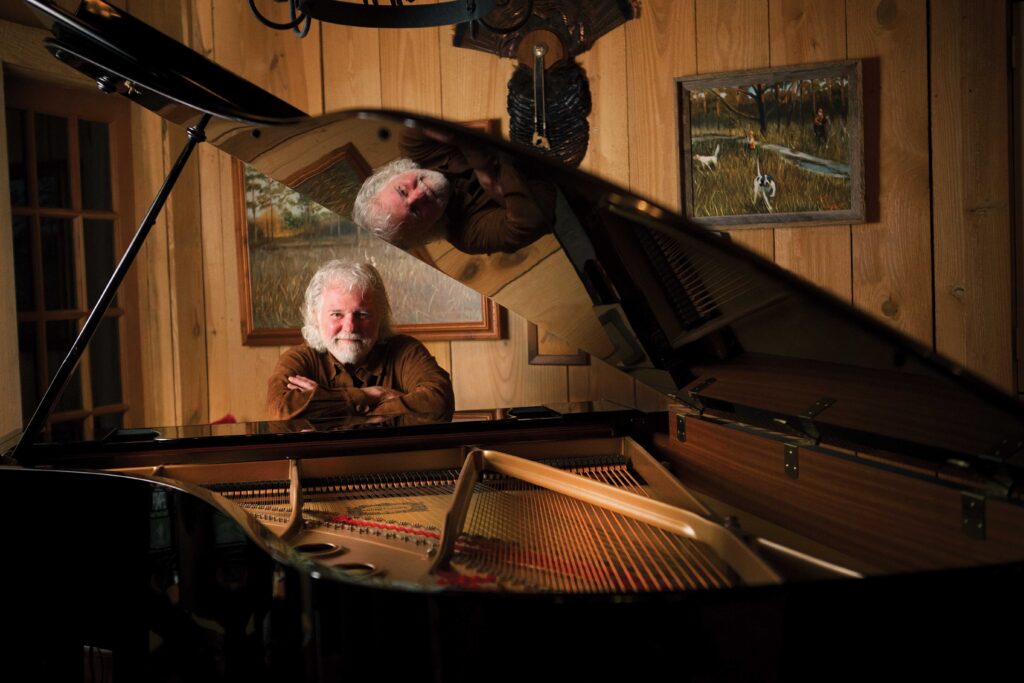
The path to gentleman farmer status is littered with lawyers and bankers, but rare is the man who reaches that bucolic state by rocking with the Allman Brothers or rolling with The Stones. Chuck Leavell may, in fact, be the tip of that spear, but there’s no single key to his success. There are 88. And Chuck’s mastery of them all has whipped audiences into a frenzy for decades.
His greatest legacy, though, may not stem from the piano he plays as much as from the soil he turns, the trees he cultivates, and the ecosystem he cares for along the Ocmulgee River in central Georgia. Together with Rose Lane, his bride of more than 40 years, Chuck has seasonally traded the piano bench for a tractor seat as their beloved Charlane Plantation, a combination of their names, has grown and prospered. This is their story, and it would be easy to be distracted by the shiny things.
Scratch the surface, though, and their story grows richer, like the sandy loam pushing their pine trees toward the sky. That same dirt has held Rose Lane’s family roots for generations, and the couple’s determination to be good stewards of that legacy has been foundational to their marriage. Their journey has not unfolded without hard work and sacrifice, though. After all, you can’t always get what you want.
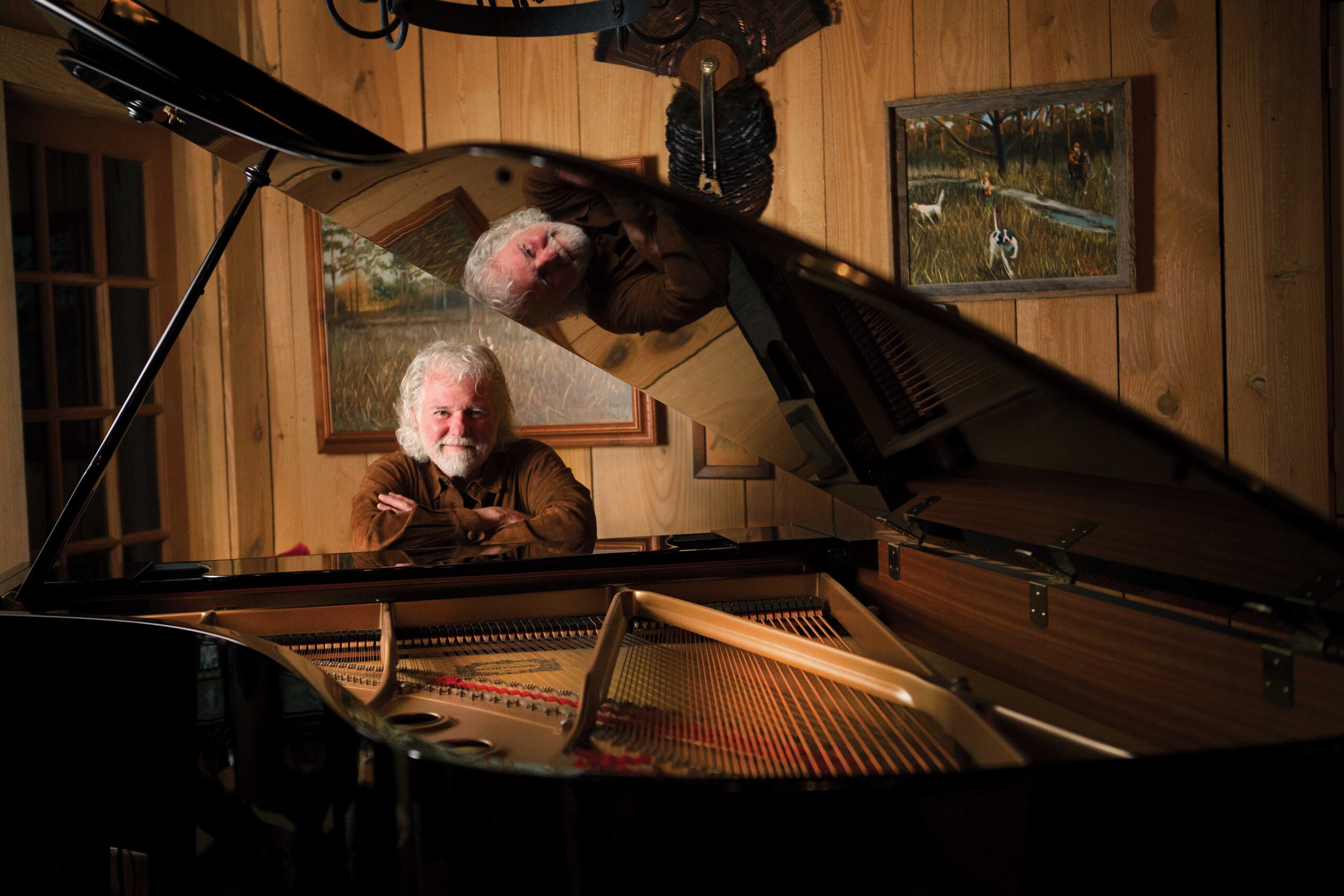
YOU GET WHAT YOU NEED Chuck was an early adopter of the piano, but not in the usual sense. Though his mother encouraged him and arranged for lessons, Chuck’s “ears got ahead of his eyes” and ended his formal music training when he was very young. Instead, he developed the ability to play by ear and to correlate sounds in terms of feelings and emotions. He was aided, in part, by his sister’s job in a record store. Each week they would pool their resources and purchase the latest records from a diverse assortment of artists, from The Beatles and Simon & Garfunkel, to Aretha Franklin and Wilson Pickett.
So Chuck was immersed in the commercial possibilities of music, and he recognized the necessity and potential thrill of performance that would enable him to share the wonder with others. Now, plenty of kids go through a phase where they want to be a rock star, but very few grab the ring, harness into the trace chains, and plow the dirt required to grow the dream into reality.
Chuck was different. He cultivated his skills, played in a couple of early bands in high school, and even made the journey, at the tender age of 15, from his hometown of Tuscaloosa, Alabama to Muscle Shoals, home of The Swampers and one of music’s recording epicenters. Following his father’s assertion that “you make your own luck,” Chuck hung around the studio pitching his skills to musicians and engineers, and his persistence paid off.
His studio work took him from Muscle Shoals to an emerging music scene and Capricorn Records in Macon, Georgia, where, at the age of 20, he joined the Allman Brothers Band. By 30 he was playing keyboards for The Rolling Stones and collaborating with music legends all around the world. Nice work if you can get it, but it’s even better if you’ve earned it, and better still if you’ve retained the humility, work ethic, and perspective that allow a man to travel the world without forgetting where he came from.
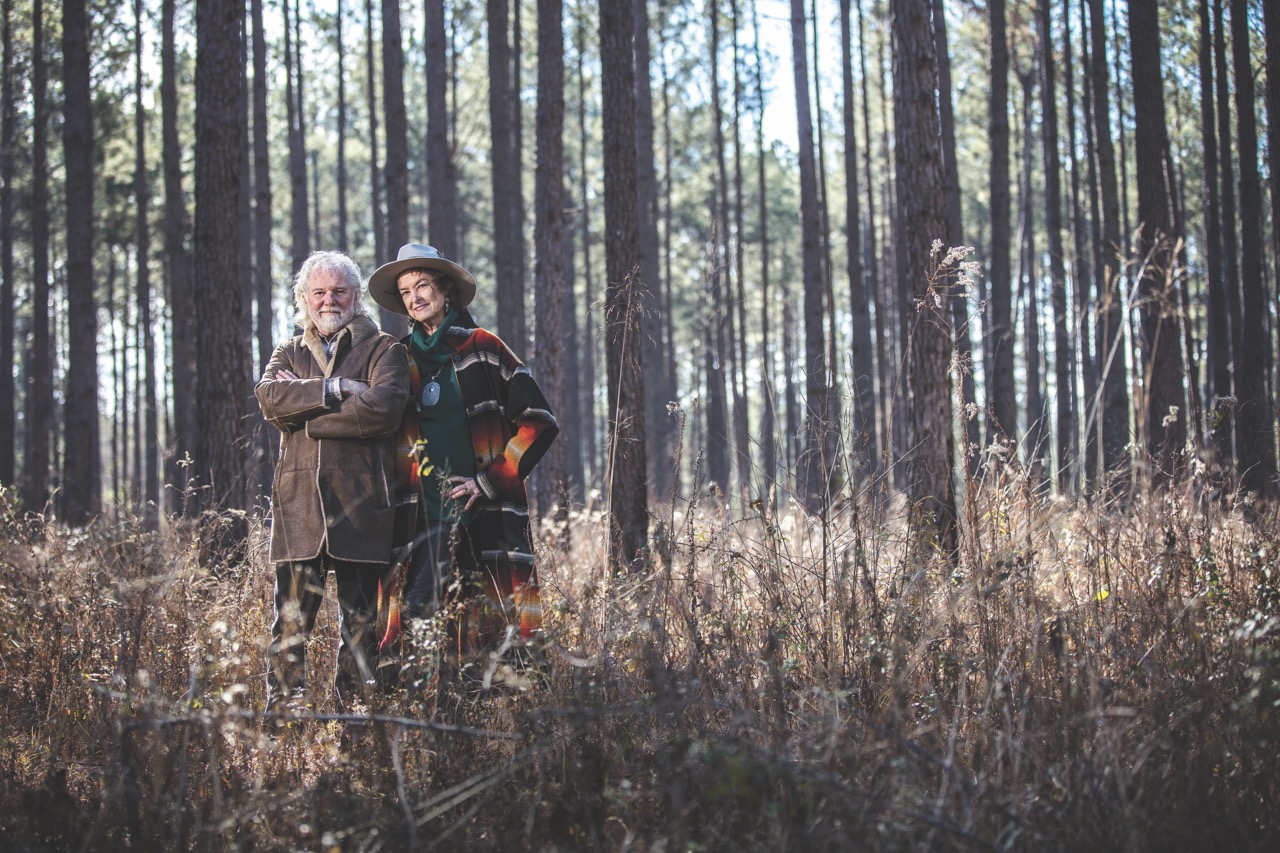
EMOTIONAL RESCUE When Chuck followed early mentor Paul Hornsby to Macon and Capricorn Records, little did he know the extent to which his world would shift on its axis. The music was opening new doors, sure, but the bright eyes and broad smile that greeted him on that very first day made a lasting impression, and they belonged to Rose Lane, who was among the early staff at Capricorn Records. A friendship evolved into courtship and marriage, and they’ve been inseparable ever since. Theirs is a partnership in the truest sense of the word, a base of support that has allowed both to pursue parallel paths along the same journey.
For most of the last four decades, Chuck has toured the world with The Stones and others, and Rose Lane and their kids would often join him for portions of the tour. At the same time, though, their growing family was building a life back in Macon, where Rose Lane owned and operated a number of businesses and kept the home fires burning.
In recent years, with kids grown and launched, and schedules a bit more flexible, Rose Lane has become an active part of the annual Stones tour, and she’s sold the Macon businesses and real estate that she cultivated through the years, choosing to focus on the growing business at Charlane Plantation, a venture that she and Chuck started together. And this is where their lifelong partnership seems to flourish. They play to each other’s strengths and weaknesses so well that entertaining others is made to seem effortless.
Marriage is tough even under the best circumstances, and a life on the road, even a road paved with gold, has no doubt taken its toll on Chuck and Rose Lane. It seems also, though, to have strengthened the bond they share with each other. Rose Lane is vivacious and gregarious, with a hint of mischief in her eyes, and that seems a perfect balance to Chuck’s comfortably quiet and introspective calm, characterized best, perhaps, by his almost ever-present grin.
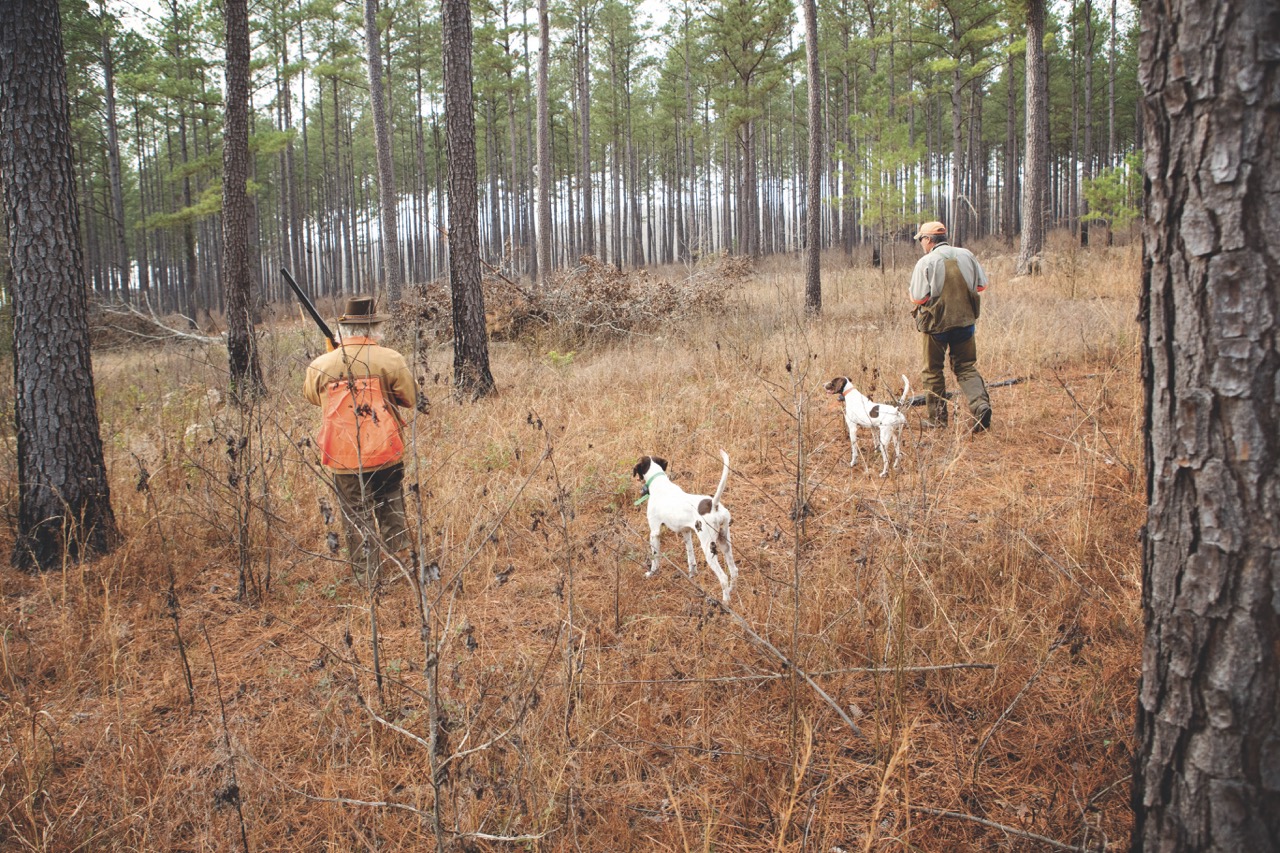
SATISFACTION It has been said that a rolling stone gathers no moss, and that might be true, but Chuck Leavell has not only planted roots, he has collected a bunch of pine trees. With an initial inheritance of a part of Rose Lane’s family farm in 1981, the Leavells began an important journey of both purposeful stewardship and thoughtful investment of time and treasure. Rose Lane’s connection to the land was palpable, but Chuck’s was more tenuous. In the grand scheme of things, land is a patient asset, but a farm needs direction and vision if the land is to be improved responsibly. For Chuck and Rose Lane, the die was cast with the very first 50-acre field, and they had to decide what kind of farmers they wanted to be. Row crops had been successful to that point, but the daily commitment was a tough task with their hectic schedules. The answer soon came from Rose Lane’s brother, Alton, who lived across the road on the portion of the family farm he had inherited. His suggestion? Plant pine trees. Seemed simple enough, but Chuck didn’t know the first thing about trees or forestry or conservation, or even farming for that matter. He was a piano player, and a busy one at that.
With Alton’s continued guidance, though, Chuck and Rose Lane planted their first trees, and that stand remains a point of pride to this day. But as with his early efforts to be a successful musician, Chuck wasn’t satisfied with a cursory knowledge of tree farming. So he read all the books he could find, beginning with the early masters in the field like Stoddard, Pinchot, and Leon Neal. He enrolled in a correspondence course through the University of Georgia’s School of Forestry, learning about balancing income, conservation, and sustainability through farming a renewable resource, all while rolling with The Stones. He learned about quail habitat conservation while touring with The Fabulous Thunderbirds.
Of the many gifts bestowed upon Chuck Leavell, perhaps the greatest is terminal curiosity. He never misses an opportunity to learn from those ahead of him and teach those who follow. His expertise in forestry and conservation has grown to the extent that he has served as a spokesman for the Georgia Forestry Association and as an advocate for the American Chestnut Foundation. Not bad for a piano player.
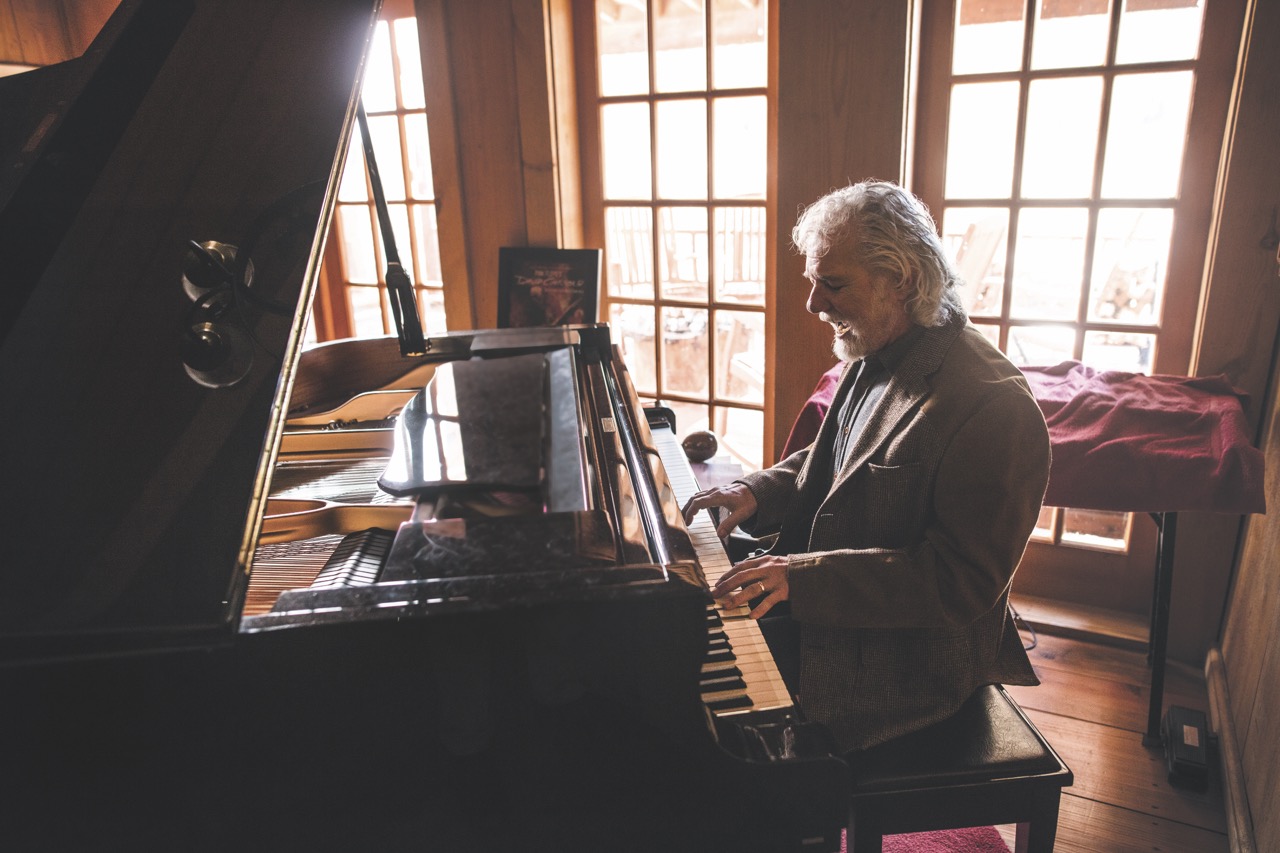
GIMME SHELTER The impetus for this pursuit of forestry knowledge, remember, was a more responsible stewardship of the family farm, an inheritance they named Charlane Plantation and, in 1991, expanded to 2,900 acres. At the heart of the operation is Rose Lane’s grandmother’s home, where she and Chuck live now, enveloped in country charm accessorized with concert tour memorabilia and extraordinary art. Rose Lane has converted an old sun porch into a studio of sorts, where natural light mixes congenially with oil paints and canvas. The central room of the house is anchored by a concert grand piano. The house bears witness to this family’s efforts to build a life around creative expression, but every room has a window that looks out across the real legacy.
As a way of sharing the work they’ve done together building and curating Charlane Plantation, Chuck and Rose Lane converted an 1835 farmhouse into a lodge and began welcoming guests to hunt, play, and stay. Their personalities blend beautifully, and the hospitality seems effortless. Rose Lane tells a story like nobody’s business, and their life on the road has produced a ready cast of characters. And before you know it, Chuck has eased out of a deep conversation about conservation and tree farming and settled at the piano for a little offering of his own.
In a way, it’s part of the shtick, one of the unique hooks for the Charlane experience: some rock-n-roll stories and a few keyboard strolls down memory lane. You’d think it might get old for them, and it might, but their enthusiasm never wanes. In the end, I suppose, it’s a small price to pay for the larger work they do, as responsible stewards, active tree farmers, and ardent conservationists. The quiet life along the Ocmulgee River shelters them from the storm of what for most would be the utter chaos of rock-n-roll touring, but it has also served them well in their role as what might be described as environmental entrepreneurs.
In addition to their advocacy for responsible forestry and simply leading by example, Chuck is a founder and active partner with the Mother Nature Network, a website and digital community that cultivates information and advice on conservation, sustainable living, and social responsibility. And he plays the piano with The Rolling Stones. Work, work, work.
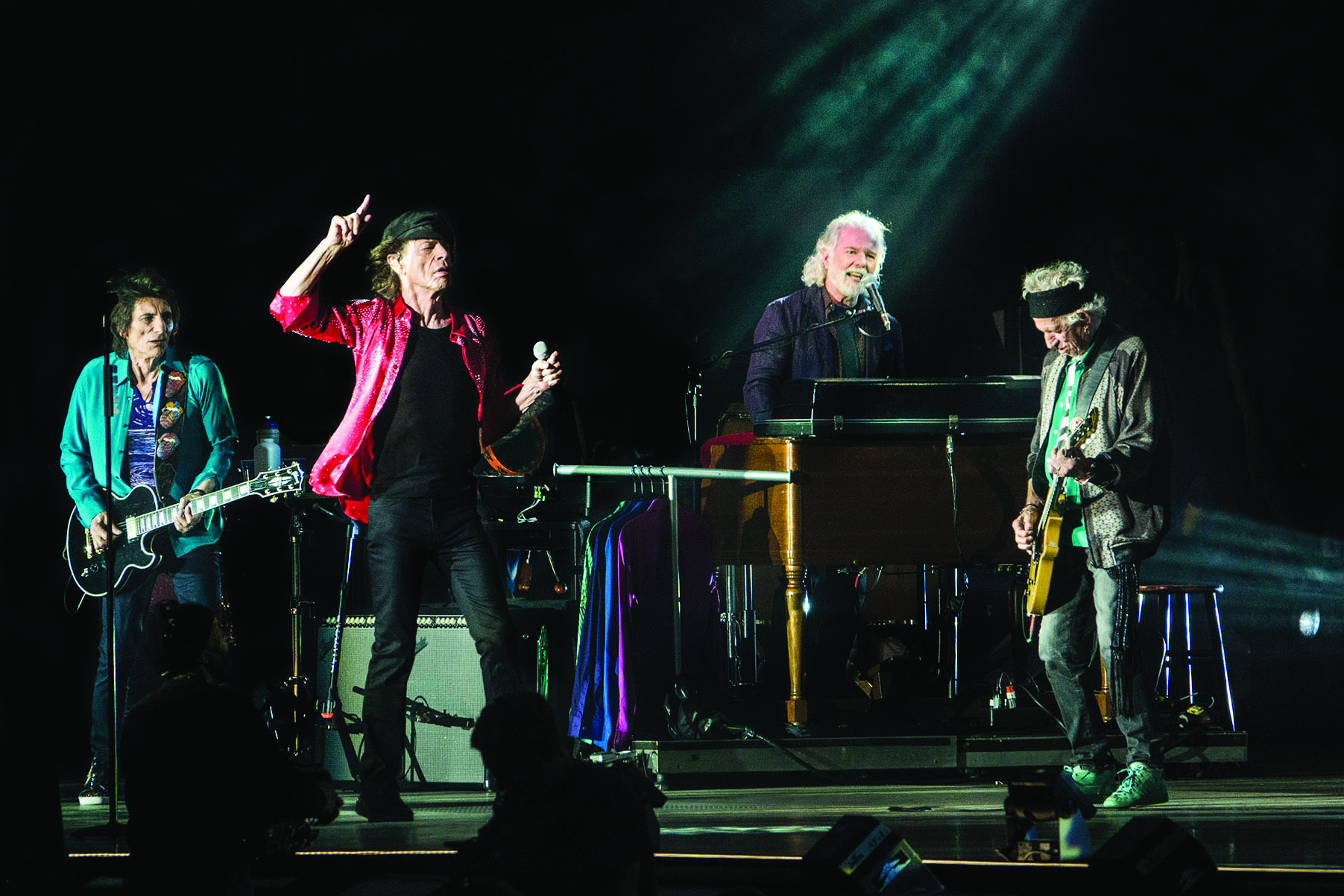
RAMBLIN’ MAN Regardless of the nature and circumstances of his birth, Chuck Leavell has spent the better part of many years trying to make a living and doing the best he can. Most would argue that he’s done well as he was doing good. With Rose Lane at his side and the wind largely at his back, Chuck Leavell has lived the American dream as it might’ve been captured in song lyrics through the years. That’s the good news. The even better news is that he’s not finished yet. Not even close.
His commitment to health and fitness—arguably uncharacteristic for folks in his industry—finds him rising with the sun every day and embracing a workout before climbing aboard a tractor and tending to his trees. He finds an almost Zen-like quality to the work, the vibrations entering the body in waves like music, and the results offering both immediate gratification and a healing of sorts, where distractions dissipate to make room for creative energy. The afternoon might offer some rehearsal time at the keyboard to keep the fingers loose and the mind sharp, but the draw of the outdoors will tempt him mightily.
When asked what lyrics might best reflect his current state, his response is immediate: James Brown’s “I Feel Good.” That’s a pretty good song to sing when your ultimate goal is to continue walking the Earth with grandkids in tow. When a busy day affords Chuck an opportunity to reflect on his legacy, he is drawn to the primitive human connection to wood and music. That connection is, for him, more salient because he plays the piano, the perfect confluence of wood and music, but the connection runs even deeper than that.
“In the woods we return to reason and faith,” he says, quoting Ralph Waldo Emerson as one might recall a favorite song lyric. “That’s my church,” he concludes with a nod. And when it’s time for leaving, he says without rambling, he hopes we understand that Chuck Leavell was a man who followed his passions and lived every minute. Preach on, brotherman. Preach on.
Originally published in Volume 6, Number 6 (October-November 2018) of Covey Rise.
























